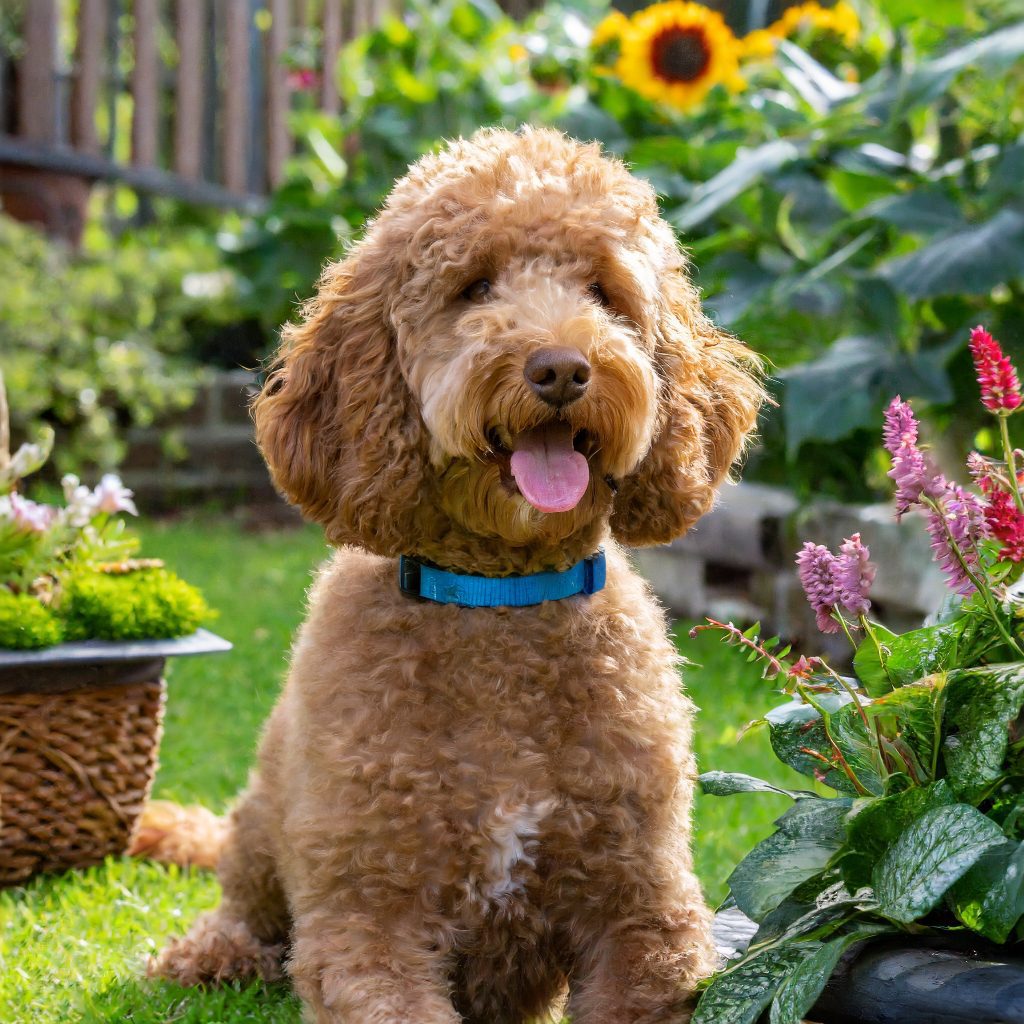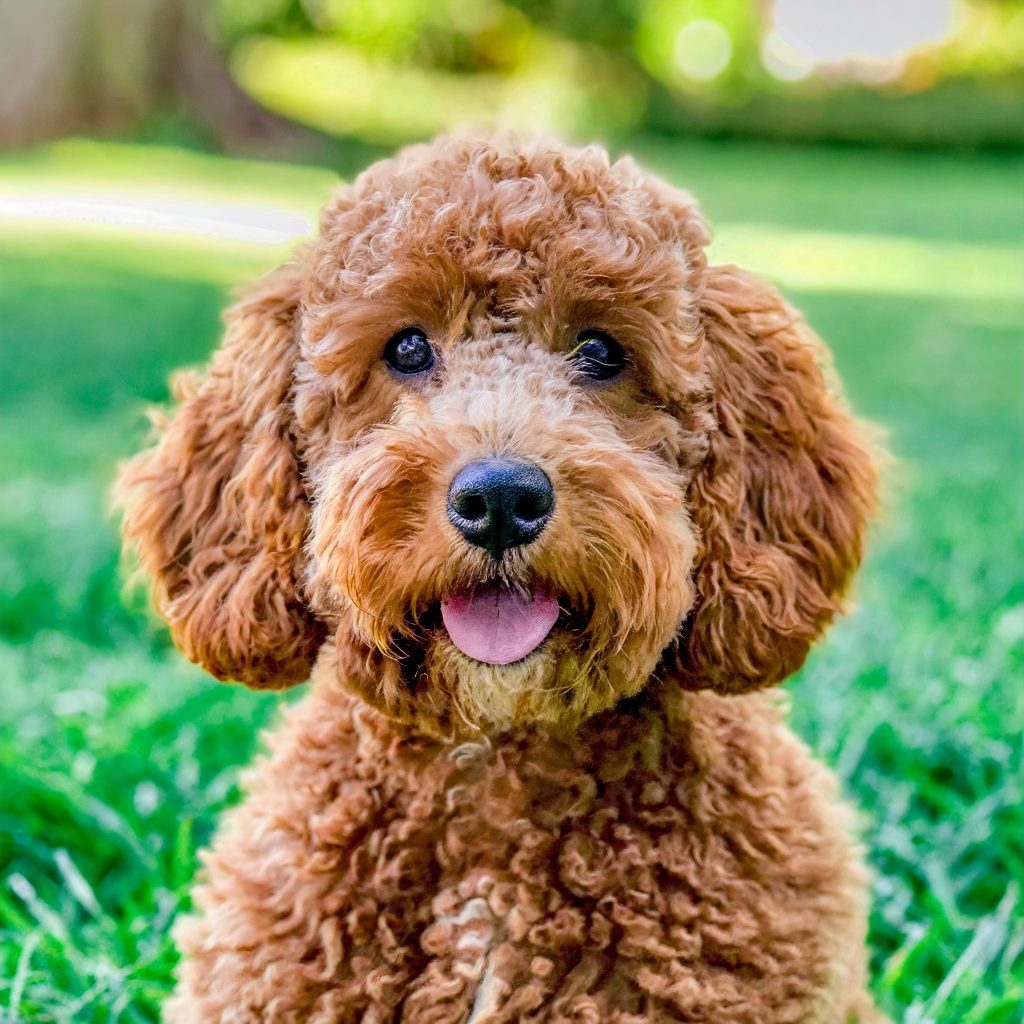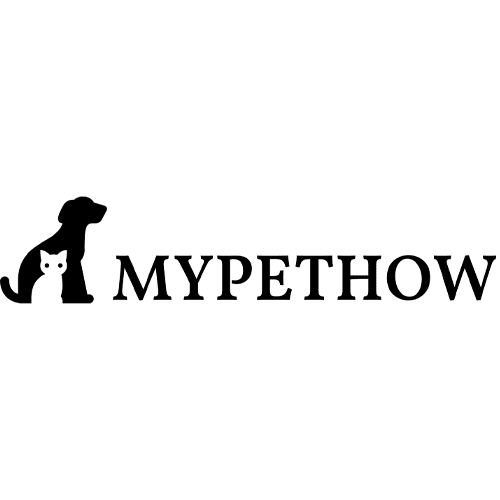The Snickerdoodle Dog is an adorable and unique breed that has been gaining popularity over the years. This designer crossbreed is the result of breeding a Poodle and a Schnauzer, resulting in a dog that is both intelligent and affectionate. While not officially recognized by kennel clubs as a breed, the Snickerdoodle Dog has become a beloved companion for many families.
The precise origins of the Snickerdoodle Dog are somewhat mysterious, but what is clear is that they are devoted and loving four-legged companions. These dogs are relatively rare, primarily found in the United States, and are known for their high energy and active nature. They showcase a delightful combination of physical features from both parent breeds, making them a unique addition to any family.
Key Takeaways
- Snickerdoodle Dogs are a designer crossbreed resulting from breeding a Poodle and a Schnauzer.
- These dogs are intelligent, affectionate, and known for their high energy and active nature.
- While not officially recognized by kennel clubs, Snickerdoodle Dogs have become a beloved companion for many families.
History of Snickerdoodle Dogs
Snickerdoodle dogs, also known as Schnoodles, are a relatively new designer breed that originated in the United States. The breed is a cross between a Miniature Schnauzer and a Poodle, and was first developed in the 1980s.
The exact origins of the Snickerdoodle dog are not well documented, but it is believed that breeders were looking to create a new breed that combined the best traits of both parent breeds. The Miniature Schnauzer is known for its loyalty and intelligence, while the Poodle is known for its hypoallergenic coat and intelligence.
The Snickerdoodle dog quickly gained popularity among dog lovers due to its friendly, affectionate nature and adorable appearance. Today, the breed is recognized by several dog organizations, including the American Canine Hybrid Club and the Designer Dogs Kennel Club.
While the Snickerdoodle dog is still a relatively new breed, it has already made a name for itself in the dog world. These dogs are known for their high energy levels, intelligence, and playful nature, making them a great choice for families with children or active individuals. Additionally, their hypoallergenic coat makes them a great choice for people with allergies.
Characteristics of Snickerdoodle Dogs
Snickerdoodle dogs are a relatively new designer breed that is a cross between a Poodle and a Schnauzer. They are known for their adorable looks and friendly personalities. Here are some of the characteristics of Snickerdoodle dogs:
Physical Attributes
Snickerdoodle dogs typically have a medium-sized frame and can weigh anywhere between 10 to 60 pounds. Their coat is usually soft, wavy, and curly, and can vary in color from white, black, brown, or a combination of these colors. They have a charming, expressive face with bright, intelligent eyes that reflect their lively and curious nature.
Temperament
Snickerdoodle dogs are known for their high energy levels and playful nature. They enjoy interactive playtime and thrive in an environment that provides mental and physical stimulation. With their Poodle heritage, they are typically intelligent and quick learners, making them easy to train. They are also affectionate and loyal to their owners, making them great family pets.
However, like any other dog breed, Snickerdoodle dogs have their own set of unique personality traits. They can be stubborn at times, which can make training a bit challenging. They also have a tendency to bark excessively, which can be a problem if they are not trained properly. Therefore, early socialization and training are essential to ensure they grow up to be well-behaved and obedient dogs.
Caring for a Snickerdoodle Dog

When it comes to caring for a Snickerdoodle Dog, there are a few things to keep in mind. This section will cover the dietary needs, exercise requirements, and grooming tips for this unique breed.
Dietary Needs
Snickerdoodle Dogs require a balanced diet to maintain their health and energy levels. It is recommended to feed them a high-quality dog food that is appropriate for their age, size, and activity level. They may also benefit from additional supplements such as omega-3 fatty acids, which can help support their skin and coat health.
It is important to monitor their food intake and avoid overfeeding, as Snickerdoodle Dogs can be prone to weight gain. It is also recommended to provide them with fresh water at all times.
Exercise Requirements
Snickerdoodle Dogs are an active breed and require regular exercise to stay healthy and happy. A daily walk or playtime in the yard can help them burn off excess energy and prevent boredom. They may also enjoy activities such as hiking, swimming, or agility training.
It is important to note that Snickerdoodle Dogs may have a high prey drive and should be kept on a leash or in a secure area when outside. They may also benefit from socialization and training to help them interact appropriately with other dogs and people.
Grooming Tips
Snickerdoodle Dogs have a unique coat that requires regular grooming to keep it healthy and tangle-free. They may benefit from daily brushing to prevent matting and remove loose hair. It is also recommended to trim their hair every 6-8 weeks to maintain a neat appearance.
In addition to brushing and trimming, Snickerdoodle Dogs may also require regular bathing, ear cleaning, and nail trimming. It is important to use high-quality grooming products and seek professional help if needed.
Health Concerns of Snickerdoodle Dogs

Snickerdoodle dogs are generally healthy and have a life expectancy of 12 to 16 years. However, like all breeds, they are susceptible to certain health issues. It is important for owners to be aware of these potential health concerns so that they can take preventative measures and seek veterinary care if necessary.
Common Health Issues
One of the most common health issues that Snickerdoodle dogs may face is dental problems. They are prone to tartar buildup and gum disease, which can lead to tooth loss and other health issues. Regular dental care, including brushing and professional cleanings, can help prevent these problems.
Another common issue is allergies. Snickerdoodle dogs may be allergic to certain foods, environmental factors, or other allergens. Symptoms of allergies can include itching, scratching, and skin irritation. Owners should work with their veterinarian to identify and manage any allergies their dog may have.
Snickerdoodle dogs may also be prone to certain genetic health issues, such as hip dysplasia and progressive retinal atrophy. These conditions can cause pain and discomfort and may require medical treatment. Regular check-ups with a veterinarian can help identify these issues early on and allow for prompt treatment.
Preventative Care
To keep Snickerdoodle dogs healthy, owners should provide regular preventative care. This includes regular veterinary check-ups, vaccinations, and parasite prevention. Owners should also provide a healthy diet and regular exercise to maintain their dog’s overall health and well-being.
Regular dental care is also important for preventing dental problems. Owners should brush their dog’s teeth regularly and provide dental chews or toys to help keep teeth clean.
In addition, owners should be aware of any potential allergens and work with their veterinarian to identify and manage any allergies their dog may have. This may involve dietary changes or medication.
By providing regular preventative care and seeking prompt veterinary care when necessary, owners can help ensure that their Snickerdoodle dog stays healthy and happy for years to come.
Training a Snickerdoodle Dog
Snickerdoodle Dogs are intelligent and trainable, making them an ideal breed for novice and experienced dog owners. Proper training and socialization are crucial for a well-behaved and happy Snickerdoodle Dog.
Basic Training Tips
When training a Snickerdoodle Dog, consistency and positive reinforcement are key. Here are some basic training tips to keep in mind:
- Start training early: Begin training your Snickerdoodle Dog as soon as possible to establish good habits and prevent bad ones from forming.
- Use positive reinforcement: Reward your Snickerdoodle Dog with treats, praise, and playtime for good behavior. Avoid using punishment or physical force, as it can damage the bond between you and your dog.
- Keep training sessions short: Snickerdoodle Dogs have short attention spans, so keep training sessions brief and focused. Aim for 10-15 minutes per session, several times a day.
- Be patient: Training a dog takes time and patience. Don’t get frustrated or discouraged if your dog doesn’t learn a new command right away.
Socialization
Socialization is essential for Snickerdoodle Dogs to develop good behavior and social skills. Here are some tips for socializing your Snickerdoodle Dog:
- Start early: Begin socializing your Snickerdoodle Dog as soon as possible. Introduce them to new people, pets, and environments in a positive and controlled manner.
- Use positive reinforcement: Reward your Snickerdoodle Dog for good behavior during socialization. Praise them for being calm and friendly around new people and animals.
- Gradually increase exposure: Start with low-stress environments and gradually increase exposure to new experiences. This will help your Snickerdoodle Dog build confidence and reduce anxiety.
- Be patient: Socialization is a gradual process. Don’t rush your Snickerdoodle Dog or force them into situations they’re not comfortable with.
By following these basic training tips and socialization techniques, you can help your Snickerdoodle Dog become a well-behaved and happy companion.
Adopting a Snickerdoodle Dog
When adopting a Snickerdoodle Dog, there are a few things to consider. This section will cover the basics of adopting a Snickerdoodle Dog, including where to adopt and how to choose the right one.
Where to Adopt
There are several places where you can adopt a Snickerdoodle Dog. One option is to check with local animal shelters or rescue organizations. These organizations often have Snickerdoodle Dogs available for adoption, and they can provide valuable information about the breed.
Another option is to check with breed-specific rescues. These rescues focus on specific breeds, including Snickerdoodle Dogs, and they can provide even more information about the breed.
Finally, you can also check with reputable breeders. It’s important to do your research and find a breeder who is ethical and responsible. Look for a breeder who is willing to answer your questions and provide information about the health and temperament of their dogs.
Choosing the Right Snickerdoodle Dog
When choosing a Snickerdoodle Dog, it’s important to consider your lifestyle and needs. Snickerdoodle Dogs are affectionate and playful, but they also require a lot of attention and exercise.
Consider your living situation and whether a Snickerdoodle Dog would be a good fit. If you live in an apartment, for example, a Snickerdoodle Dog may not be the best choice due to their exercise needs.
It’s also important to consider the age and temperament of the Snickerdoodle Dog you’re interested in. If you have children or other pets, you’ll want to choose a Snickerdoodle Dog who is friendly and social.
Finally, make sure to spend time with the Snickerdoodle Dog before adopting. This will give you a chance to get to know their personality and make sure they’re a good fit for your family.
In conclusion, adopting a Snickerdoodle Dog can be a rewarding experience. By considering where to adopt and choosing the right Snickerdoodle Dog, you can ensure that you and your new pet will have a happy and healthy life together.
Frequently Asked Questions
What is the average lifespan of a Snickerdoodle dog?
The average lifespan of a Snickerdoodle dog is around 12-16 years. However, this can vary depending on their overall health and lifestyle.
Are Snickerdoodle dogs hypoallergenic?
Yes, Snickerdoodle dogs are hypoallergenic, which means they are less likely to cause an allergic reaction in people who are allergic to dogs. This is because they have hair instead of fur, which produces less dander.
What are some good names for a Snickerdoodle dog?
Some good names for a Snickerdoodle dog include Snickers, Doodle, Schnoodle, Coco, and Oreo. However, the name you choose ultimately depends on your personal preference.
Do Snickerdoodle dogs come in black?
Yes, Snickerdoodle dogs can come in black, as well as other colors such as white, brown, and gray. The color of their coat depends on the color of their parent breeds.
What is the difference between a Mini Snickerdoodle and a full-grown Snickerdoodle dog?
A Mini Snickerdoodle is a smaller version of a Snickerdoodle dog, weighing between 5-12 pounds and standing at 10-14 inches tall. A full-grown Snickerdoodle dog, on the other hand, weighs between 13-20 pounds and stands at 12-15 inches tall.
Can dogs eat snickerdoodles?
No, dogs should not eat snickerdoodles or any other human food that contains sugar or spices. These ingredients can upset their stomach and cause health problems. It is best to stick to a balanced and nutritious diet specifically designed for dogs.











































